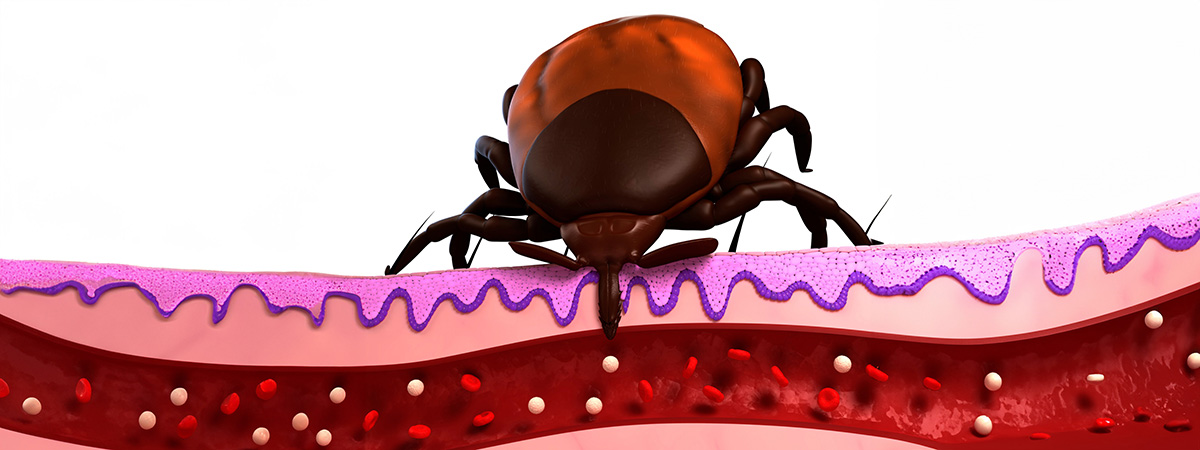
Ticks in Niagara
The spookiest thing you will come across this season in the Niagara region.
Did you know that ticks are not just a summer problem? In the Niagara region, these little pests are active all year long, even during the cooler fall months! Protect your pet from the risk of tick-borne diseases by staying proactive with prevention. Year-round protection starts here. Book with a trusted veterinarian in the Niagara community to keep your pet safe!
Savings available at these participating local hospitals—and they’re accepting new clients!

Upper Canada Animal Hospital
323 Mary St, Niagara-on-the-Lake, ON L0S 1J0

Martindale Animal Clinic
100 Fourth Ave, St. Catharines, ON L2S 3P2

Morgan Animal Hospital
6251 O’Neil St, Niagara Falls, ON L2J 1M6

St. Catharines Animal Hospital
277 Welland Ave, #14, St. Catharines, ON, L2R 2P7

Ticks are active all year in the Niagara region, and milder winters mean more severe tick presence. They’re a problem for both people and pets, and their growing numbers are linked to changes in the weather and climate. With warmer temperatures and changing environments, it’s more important than ever to protect your pet from ticks. Temperatures are ideal for ticks usually between 4°C to 25°C. Ticks will remain active for several days or even weeks after a single day with temperatures above 4°C.
In the Niagara region, ticks are commonly found in areas with grass, wooded spaces, and brushy or leaf-covered environments. This includes the grass in your yard and at the dog park. This also includes walking paths, gardens, shorelines, riverbanks and field. To reduce the risk of ticks on your pet, it is important to be protected year-round.
Ticks can pose significant health risks to your pet. Ticks are known carriers of several diseases that can affect pets including:
- Lyme disease: Can cause fever, joint pain, and lethargy, and, if untreated, can lead to kidney failure or other severe complications.
- Anaplasmosis: Can cause symptoms like fever, lethargy, and joint pain.
- Ehrlichiosis: Another tick-borne disease that can lead to fever, swollen lymph nodes, and bleeding disorders.
- Babesiosis: A parasitic infection that can damage red blood cells, leading to anemia and other complications.
Some tick species produce toxins that can cause paralysis in pets. This paralysis can begin in the legs and progress, potentially leading to respiratory failure if untreated. Tick bites can cause irritation, itching, and infections at the site of attachment, leading to discomfort and potential skin problems.
It’s essential to regularly check your pets for ticks, especially after they’ve been outdoors, and use preventive measures like tick control products to protect them.
The best way to ensure your pet is safe is by visiting a veterinarian for trusted tick prevention products. Veterinary-prescribed treatments are proven to be safe, more effective and tailored to your pet’s specific needs— unlike over-the-counter options. Your veterinarian can guide you through the safest and most reliable choices, avoiding potential risks or ineffective products that may come with self-purchased treatments. For peace of mind and the best protection, consult a vet today!
Now accepting new clients! Contact one of these local Veterinarians to keep your pet protected!
Upper Canada Animal Hospital
323 Mary St, Niagara-on-the-Lake, ON L0S 1J0
Martindale Animal Clinic
100 Fourth Ave, St. Catharines, ON L2S 3P2
Morgan Animal Hospital
6251 O’Neil St, Niagara Falls, ON L2J 1M6
St. Catharines Animal Hospital
277 Welland Ave, #14, St. Catharines, ON, L2R 2P7